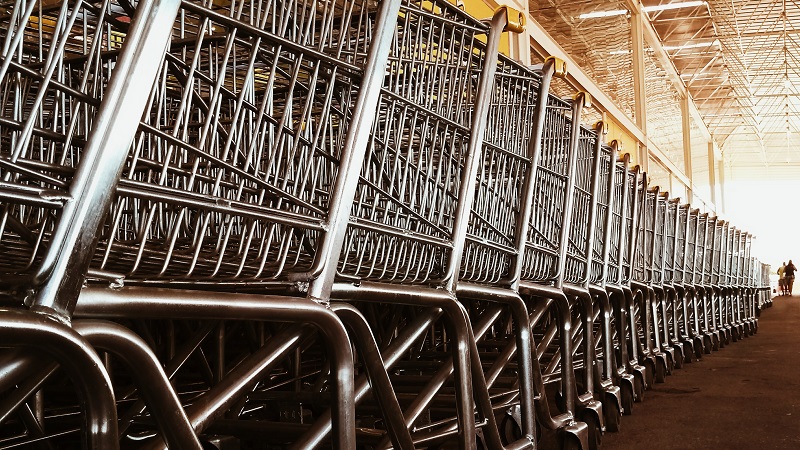UK retail sales volumes fell 3.2% in December, despite expectations of just a 0.3% drop, in the largest monthly decline since shops were forced to close due to Covid lockdowns in January 2021.
The decline followed on from a 1.4% rise in November, which was boosted by Black Friday sales.
Earlier this week, the Office for National Statistics revealed a surprise 0.1% increase to inflation.
“UK retail sales ultimately proved a disappointment in 2023,” said Michael Field, European market strategist at Morningstar. “While November’s rise in sales gave us hope, that was soon dashed in December, with the largest monthly decline since the pandemic. Retail sales fell by 3.2%, against expectations of just a 0.3% point fall. This is something that will undoubtedly shock the markets.
“This has completely changed the picture for 2023, with retail sales now having fallen by 2.4% over the period. This is not a great result, and despite GDP being positive over the same period, it is a clear sign that the UK economy is struggling.”
See also: Inflation upside surprise a ‘bitter pill to swallow’ for BoE
‘Retailers could be in for more pain in 2024’
Non-food sales fell more heavily, down almost 4% in December, a clear sign that consumers are cutting back on non-essential items, Field said.
“UK mortgage rates are coming down, but off a very high base. BBA rates are still close to 8%, putting further pressure on household incomes. The effect of higher interest rates is still feeding its way through the economy. Unfortunately, this means that retailers could be in for more pain in 2024.”
BJSS retail, gaming and consumer principal Charles Hope added: “2023 was a year to forget, with multiple storms, high energy costs, and rising inflation squeezing consumers’ spending power.
“Despite a small bump in quantities through November and Black Friday up to Christmas, customers still felt the hangover from the year, leading to the largest single month drop since January 2021. Retailers will be concerned by the relatively poor golden quarter, and a continued consumer focus on tightening purse-strings.”
Charlie Huggins, manager of the Quality Shares Portfolio at Wealth Club, said the severity of the unexpected decline suggests pressure on the UK consumer may be intensifying.
“Results from retailers themselves over Christmas paint a very mixed picture,” he said. “The supermarkets fared reasonably well, as did Next and M&S. But sales from the likes of JD Sports and Superdry have been very disappointing. This suggests UK consumers are becoming more choosy about where to spend their money.
“Whether December’s weak retail sales are a blip or the start of a more worrying trend remains to be seen. But one thing’s for sure – despite optimism around interest rate cuts, the UK economy certainly isn’t out of the woods.”










